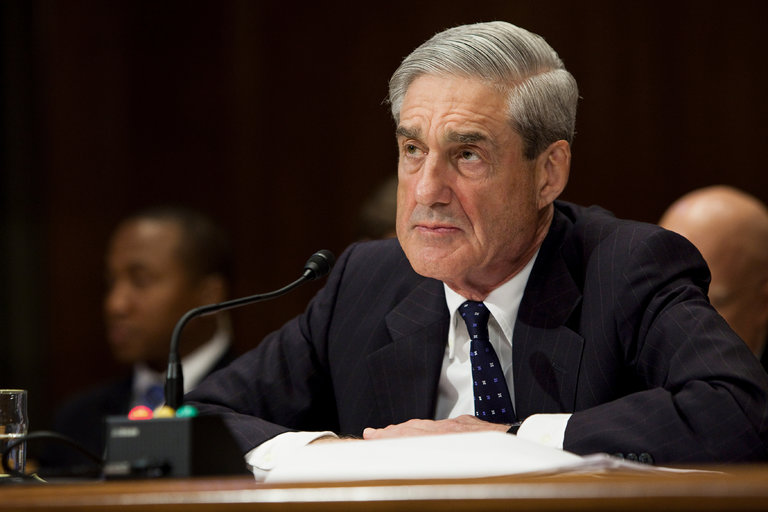The secret ace up Robert Mueller’s sleeve

On Monday, Donald J. Trump stated, “We’ll see what happens. Many people have said, ‘you should fire him,’” when asked about his plans for Special Counsel Mueller. Trump often has stated over the last few weeks that he has the absolute power to fire Mueller, but even if that is not correct, he could take a series of actions that will result in Mueller being replaced. Those actions would start (and may already be in motion) by pressuring Deputy Attorney General Rod Rosenstein.
As we know, Congress last week demanded the Comey memos regarding his interactions with Trump, and those memos were immediately released to the press. Congress could continue to pressure Rosenstein to release more and more information, forcing Rosenstein to comply or risk being fired. Someone could then be put in Rosenstein’s place that would in turn fire Mueller or try to conclude this investigation.
All prosecutors, including Special Counsel Mueller, have the ability to obtain a “sealed” or secret indictment from a grand jury. The federal prosecutors often use the sealed indictment in pending investigations when sensitive matters are being investigated. It remains non-public until it is unsealed, which can happen at any time in the future. If a grand jury returns an indictment, the matter would then go before a magistrate judge, who would decide in a preliminary hearing on whether the prosecutor has provided sufficient evidence a crime was committed and, if yes, whether the indictment can remain sealed.
The indictment would then be secret until the indicted defendant is arrested. The beauty of the sealed indictment is that it locks in the charges and preserves any statute of limitations (timing of charges) issues. Prosecutors often seal an indictment while the investigation continues and in situations where it is in the public interest to do so. Mueller in this case may be trying to establish a secret or more (there are multiple grand juries in place) to preserve any case against Trump. Mueller would of course have to determine if he has sufficient grounds to charge Trump with criminal misconduct, but if he makes that determination, secret indictments would be one approach to ensuring that the investigation has indictment outcomes.

Daniel is a lawyer writing and teaching about SCOTUS, and is the author of the book “The Chief Justices” about the SCOTUS as seen through the center seat.
